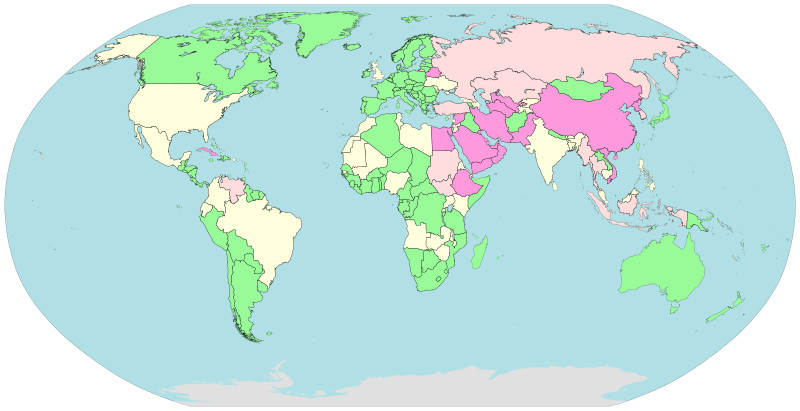
Internet Censorship and Surveillance World Map
The Russian legislature has passed amendments to current laws which will criminalize ‘disrespecting the state’. The measure will now be sent to Russian President Vladimir Putin to be signed into law. Freedom advocates in the Russian Federation have decried the legislation as ‘direct censorship’.
If passed and signed by the president, the legislation will establish punishments for spreading information that “exhibits blatant disrespect for the society, government, official government symbols, constitution or governmental bodies of Russia,” reported The Moscow Times.
Online news outlets and users that spread “fake news” will face fines of up to 1.5 million rubles ($22,900) for repeat offenses. Insulting state symbols and the authorities, including Putin, will carry a fine of up to 300,000 rubles and 15 days in jail for repeat offenses.
In addition, over 15,000 people showed up to demonstrate in Moscow, and other Russian cities, against measures that Russians fear will restrict internet freedom. The authorities say they are taking these measures to ensure cyber security but most citizens do not believe them.
Press freedom and a viable opposition are now in the past in the Russian Federation it seems as the Kremlin tries to prevent civil unrest in a slow-growth economy.
“Everyone is calling for Internet freedom <…>, that’s why as far as Internet freedom is concerned, the position of this event’s participants can be backed. But we cannot support their misunderstanding and deception that the passed bills are somehow aimed at limiting Internet freedom. On the contrary, they are designed to ensure Internet’s viability amid potential aggressive steps in cyber space against our country,” Kremlin spokesman Dmitry Peskov stressed, reported Russian state news agency TASS.
The Kremlin spokesman said he saw one of the rally participants saying on TV that Russia’s authorities are allegedly “seeking to press the button and cut the country off from the Internet.” “This is absolutely a deception. However, this participant somehow is not afraid that someone overseas will press this button and disconnect him from the Internet, but this is a real reason for fears,” he noted. The steps of legislators and authorities “are aimed at securing our citizens from such shutdowns in case of this situation,” Peskov said.

